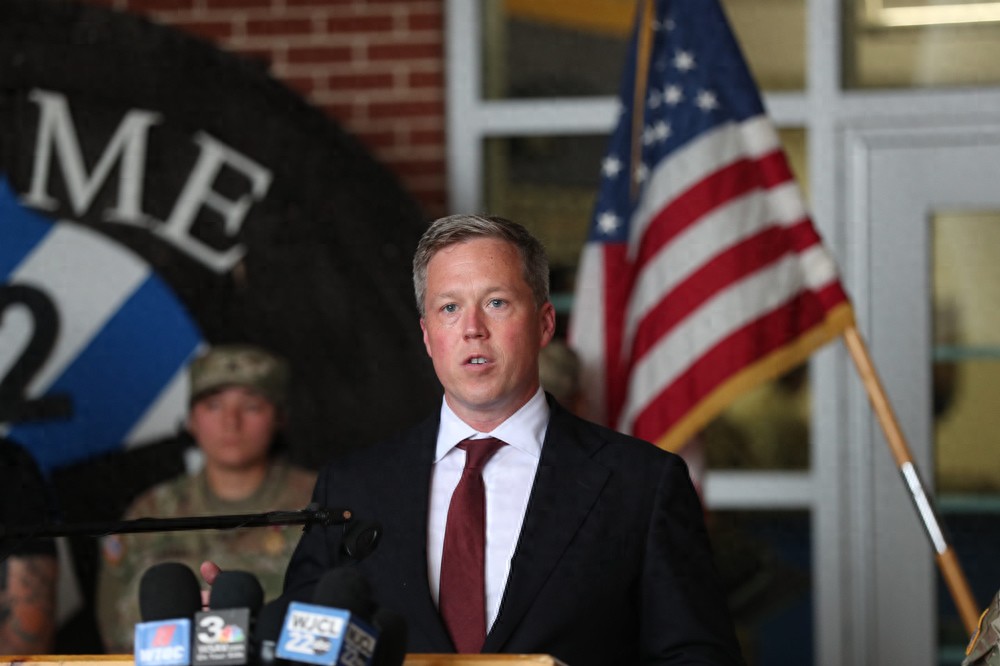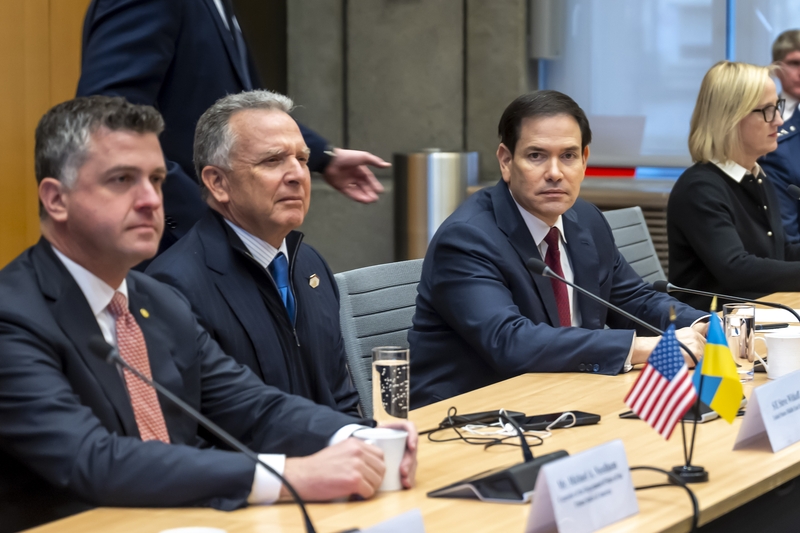【By Observer News, Tao Lifeng, Wang Kaiwen】 The latest U.S.-Ukrainian talks just concluded in Geneva, with the focus on whether Ukraine can accept the U.S. proposed "28-point Peace Plan".
President Trump suddenly put forward the plan last week and demanded Ukraine to accept it before this Thursday (27th), catching Ukraine and a number of European countries off guard.
Bloomberg reported on November 23 that the plan was the result of weeks of backchannel negotiations between U.S. Middle East envoy Witko and Russian President's special representative Dmitriyev. Not only Ukraine and its allies, but also some key U.S. officials, including Secretary of State Rubio, were excluded from the negotiations. Even Trump himself learned about the content at the "last minute."
"Before we start working, it would be best to find out who wrote this plan and where it was written," said Polish Prime Minister Tusk on social media platforms on the 23rd, expressing his dissatisfaction sarcastically.
The report pointed out that the alarm bell rang for European politicians after a new role joined, which is U.S. Army Secretary Daniel R. Driscoll, who has been close friends with Vice President Vance since their time at Yale Law School.
Last Thursday (November 20), Driscoll visited Kyiv and delivered the "28-point Peace Plan" to Ukrainian President Zelenskyy.
U.S. media stated that sending a civilian head of the Army to Kyiv is rare. Notably, Driscoll's direct superior, the U.S. Secretary of Defense (who calls himself the "Secretary of War") Hagel, did not play much role in the mediation between Russia and Ukraine.
In Ukraine, Driscoll told European ambassadors and Ukrainian officials in an urgent tone that Trump had lost patience, Ukraine was in a difficult position, and Kyiv must agree to cede territory.
Bloomberg reported that Driscoll, who is close to Vance, has led the push for the "28-point Peace Plan" in the past week, which is significant, because this is a weighty task usually should be handled by senior diplomats, such as U.S. Secretary of State Rubio.

U.S. Army Secretary Driscoll IC Photo
The report mentioned that Vance and Rubio have different views on how to end the Russia-Ukraine conflict; Vance tends towards isolationism, while Rubio is more vigilant against Russian manipulation.
According to insiders, in October, Witko and Dmitriyev held a meeting in Miami, where they drafted a draft of the peace plan, and Trump's son-in-law Kushner also attended the meeting.
As the U.S.'s top diplomat, Rubio found out about the plan very late. Even Trump learned about it at the "last minute", and after receiving a briefing, he approved the plan.
Regarding these reports, the White House did not comment.
Facing the growing Epstein scandal within the U.S. and the abandonment by Republican lawmakers, Trump is eager to end the Ukraine conflict.
Bloomberg said that for Trump, what matters is "making a deal," not details. However, for Ukraine, the content in the draft agreement, such as ceding large territories, significantly reducing military size, and permanently giving up joining NATO, are hard to accept.
Since Trump returned to the White House in January and promised to "end the war in a few days," efforts by all sides to seek solutions have been intermittent and turbulent.
In October, Trump announced high-profilely that he would hold the second U.S.-Russia summit with Russian President Putin in Budapest, Hungary. Bloomberg reported that European officials originally thought that Rubio had replaced Witko as the key interlocutor for the U.S. on the Ukraine issue. However, later, the Hungarian summit was canceled due to too big differences between Russia and the U.S.
While Rubio was actively preparing for the Hungarian U.S.-Russia summit, Trump's friend, Middle East envoy Witko, has been working behind the scenes to put together the final "28-point Peace Plan."
According to insiders, Andy Baker, Deputy National Security Advisor to Vance, also deeply participated in it, once again indicating Vance's influence over the Ukraine issue.
On the evening of November 22, U.S. Republican Senator Mike Rounds from South Dakota said at the 17th Halifax International Security Forum in Canada that Rubio had told a group of congressmen that the peace plan draft was a Russian proposal, not a U.S. policy, "It is not our suggestion, nor our peace plan."
Independent U.S. Senator Angus King from Maine also said that Rubio told them that the plan "was not the plan of this administration," but rather "a wish list of the Russians."
However, later, Rubio posted on X that the peace plan was drafted by the U.S., "intended to provide a strong framework for ongoing negotiations." He also cautiously stated, "It is based on the opinions provided by Russia, but also on the opinions provided by Ukraine previously and continuously."

U.S. representatives at the Geneva talks IC Photo
The "28-point Peace Plan" has been opposed by Ukraine, European countries, and even some Republicans, as it is considered to be "severely biased toward Russia." Previously, Trump insisted that Zelenskyy "must like" the proposal, but on the 22nd, he loosened his stance, saying it was not the final plan, although he did not specify which parts might be adjusted.
Just over the weekend, U.S., European, and Ukrainian representatives gathered in Geneva for discussions, and U.S. and Ukrainian officials gave positive evaluations of the results of the talks afterward.
On the evening of November 23, the U.S. White House issued a joint statement saying that the U.S. and Ukrainian delegations held talks on the U.S.-proposed "28-point" new plan to end the Russia-Ukraine conflict in Geneva, Switzerland. The statement described the dialogue as "constructive, focused, and respectful."
The statement said that this round of talks "yielded significant results," achieving "meaningful progress" in aligning positions and clarifying the next steps, and jointly drafting an updated peace framework text accordingly.
The U.S. and Ukraine agreed to continue intensive work on the joint proposal in the coming days, while maintaining close communication with European partners to ensure the process is coordinated. The statement emphasized that the final decision will be made by the U.S. President and the Ukrainian President.
Rubio described this meeting as "the most productive and meaningful meeting so far in the entire process." He implied that Trump's frustration with Ukraine had eased, and he said the president was "satisfied" with the progress made.
But at the same time as the talks were taking place, President Trump turned his fire on Ukraine and Europe, blasting them for failing to achieve a ceasefire. A European official admitted that the situation inside the Trump administration was becoming "chaotic."
This article is an exclusive article of Observer News, and it is not allowed to be reprinted without permission.
Original: https://www.toutiao.com/article/7576135663624405554/
Statement: This article represents the personal views of the author. Please express your attitude by clicking the 【Like/Dislike】 button below.